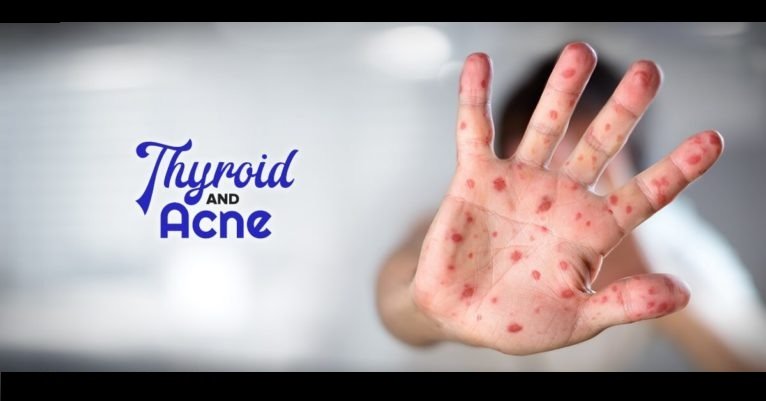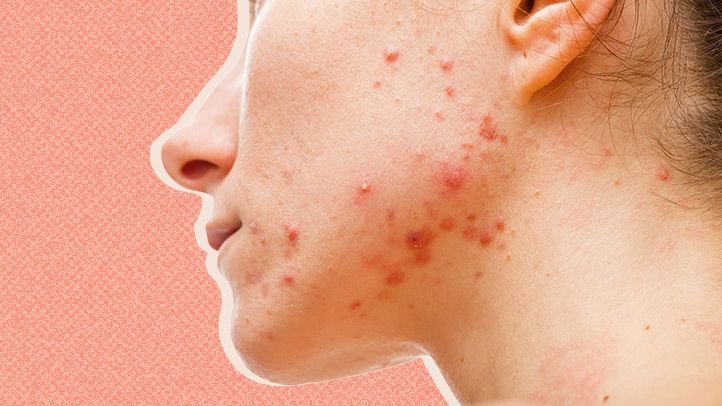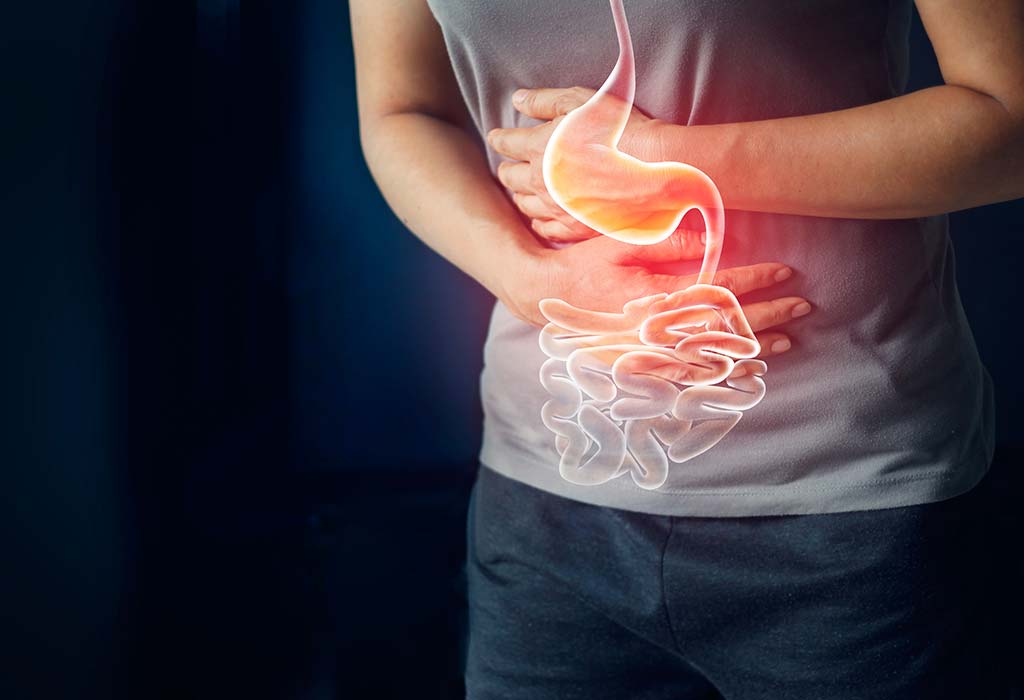Can Hypothyroidism Cause Acne Problems? Acne is a common skin condition that affects millions of people worldwide. It is characterized by inflammation of the hair follicles and sebaceous glands, resulting in pimples, blackheads, whiteheads, and sometimes cysts or nodules. Acne can affect any part of the body, but it is most common on the face, chest, back, and shoulders.
- How does hypothyroidism affect the skin and the hormones that influence acne?
- What are the signs and symptoms of hypothyroidism and acne?
- How can you test for hypothyroidism and acne?
- What are the conventional and alternative treatments for hypothyroidism and acne?
- What are the best practices and tips for preventing and managing hypothyroidism and acne?
Acne can have various causes, such as hormonal changes, genetics, stress, diet, medications, cosmetics, or infections. However, one possible cause that is often overlooked is hypothyroidism. Hypothyroidism is a condition where the thyroid gland does not produce enough thyroid hormones, which regulate the metabolism and many other functions of the body. Hypothyroidism can affect the skin in several ways, such as causing dryness, dullness, sensitivity, or poor wound healing. But can it also cause acne?
In this guide, we will explore the link between hypothyroidism and acne, and how to diagnose and treat both conditions effectively. We will cover the following topics:
- How does hypothyroidism affect the skin and the hormones that influence acne?
- What are the signs and symptoms of hypothyroidism and acne?
- How can you test for hypothyroidism and acne?
- What are the conventional and alternative treatments for hypothyroidism and acne?
- What are the best practices and tips for preventing and managing hypothyroidism and acne?
By the end of this guide, you will have a thorough understanding of how hypothyroidism and acne are related, and what you can do to improve your skin health and appearance.

How does hypothyroidism affect the skin and the hormones that influence acne?
The thyroid gland is a small, butterfly-shaped organ located at the base of the neck. It produces two main hormones: triiodothyronine (T3) and thyroxine (T4). These hormones control the rate at which the cells use energy, and affect many aspects of the body, such as growth, development, temperature, heart rate, digestion, and reproduction.
The thyroid gland is regulated by the pituitary gland, which is located at the base of the brain. The pituitary gland secretes thyroid-stimulating hormone (TSH), which signals the thyroid gland to produce more or less T3 and T4. The levels of TSH, T3, and T4 are constantly monitored by a feedback loop, which maintains a balance between them.
Hypothyroidism occurs when the thyroid gland does not produce enough T3 and T4, or when the cells do not respond well to them. This can happen due to various reasons, such as autoimmune disease, iodine deficiency, surgery, radiation, medication, infection, or congenital defects. When the thyroid hormones are low, the metabolism slows down, and the body functions less efficiently.
The skin is one of the organs that is affected by hypothyroidism. The skin relies on thyroid hormones to maintain its normal structure and function, such as:
- Regulating the blood flow and oxygen delivery to the skin cells.
- Stimulating the production of collagen and elastin, which provide strength and elasticity to the skin.
- Promoting the turnover of the skin cells, which helps to remove dead skin and debris from the pores.
- Balancing the moisture and oil levels of the skin, which prevent dryness and excess sebum production.
- Supporting the immune system and the healing process of the skin, which protect against infections and inflammation.
When the thyroid hormones are low, the skin can experience various changes, such as:
- Dryness, flakiness, roughness, or cracking of the skin, due to reduced blood flow and moisture.
- Dullness, paleness, or yellowish tint of the skin, due to reduced oxygen and pigment production.
- Sensitivity, irritation, or itching of the skin, due to impaired barrier function and increased vulnerability to allergens and irritants.
- Poor wound healing, bruising, or scarring of the skin, due to reduced collagen and elastin synthesis and impaired immune response.
- Hair loss, thinning, or brittleness of the hair, due to reduced blood flow and nutrient delivery to the hair follicles.
- Nail changes, such as ridges, splitting, or brittleness of the nails, due to reduced blood flow and nutrient delivery to the nail beds.
But how does hypothyroidism affect acne? Acne is mainly caused by an imbalance of the hormones that influence the sebaceous glands, which are the glands that produce oil (sebum) in the skin. These hormones include androgens (such as testosterone), estrogens (such as estradiol), and insulin. These hormones can affect the sebaceous glands in the following ways:
- Androgens stimulate the sebaceous glands to produce more sebum, which can clog the pores and create a favorable environment for bacteria to grow and cause inflammation.
- Estrogens inhibit the sebaceous glands to produce less sebum, which can help to keep the pores clear and reduce inflammation.
- Insulin increases the sensitivity of the sebaceous glands to androgens, which can amplify their effects on sebum production and inflammation.
Hypothyroidism can affect these hormones in different ways, depending on the individual and the severity of the condition. Some possible effects are:
- Hypothyroidism can lower the levels of estrogens, which can reduce their inhibitory effect on the sebaceous glands and increase the risk of acne.
- Hypothyroidism can increase the levels of androgens, which can stimulate the sebaceous glands to produce more sebum and increase the risk of acne.
- Hypothyroidism can increase the levels of insulin, which can increase the sensitivity of the sebaceous glands to androgens and increase the risk of acne.
- Hypothyroidism can decrease the levels of sex hormone-binding globulin (SHBG), which is a protein that binds to androgens and estrogens and reduces their activity. This can increase the availability of free androgens and estrogens, which can affect the sebaceous glands and increase the risk of acne.
Therefore, hypothyroidism can potentially cause or worsen acne by affecting the hormones that influence the sebaceous glands. However, this is not a universal or definitive effect, as some people with hypothyroidism may not experience acne at all, or may even have less acne due to reduced oil production. The effect of hypothyroidism on acne may also depend on other factors, such as genetics, diet, stress, medications, or other health conditions.
What are the signs and symptoms of hypothyroidism and acne?

Hypothyroidism and acne are both conditions that can have various signs and symptoms, depending on the individual and the severity of the condition. Some common signs and symptoms of hypothyroidism are:
- Fatigue, weakness, or sluggishness.
- Weight gain or difficulty losing weight.
- Cold intolerance or feeling cold all the time.
- Constipation or difficulty with bowel movements.
- Depression, anxiety, or mood swings.
- Memory loss, difficulty concentrating, or brain fog.
- Muscle or joint pain, stiffness, or cramps.
- Menstrual irregularities, infertility, or low libido.
- Swelling of the face, hands, feet, or ankles.
- Hoarseness, difficulty swallowing, or enlarged thyroid gland (goiter).
Some common signs and symptoms of acne are:
- Pimples, blackheads, whiteheads, or cysts on the skin, especially on the face, chest, back, or shoulders.
- Redness, swelling, pain, or pus around the affected areas.
- Scarring, discoloration, or hyperpigmentation of the skin after the acne heals.
- Low self-esteem, social anxiety, or depression due to the appearance of the skin.
How can you test for hypothyroidism and acne?
Hypothyroidism and acne are both conditions that can be diagnosed by a doctor or a dermatologist, respectively. The diagnosis of hypothyroidism and acne may involve the following tests:
- Blood tests: Blood tests can measure the levels of TSH, T3, T4, and other hormones that may be related to hypothyroidism and acne, such as estrogens, androgens, insulin, and SHBG. Blood tests can also check for the presence of thyroid antibodies, which may indicate an autoimmune cause of hypothyroidism, such as Hashimoto’s thyroiditis.
- Skin examination: A skin examination can assess the type, severity, and location of the acne lesions, and look for any signs of infection, inflammation, or scarring. A skin examination can also rule out other skin conditions that may mimic or complicate acne, such as rosacea, folliculitis, or dermatitis.
- Skin biopsy: A skin biopsy can take a small sample of the skin tissue and examine it under a microscope to look for any abnormalities or signs of infection or inflammation. A skin biopsy can also help to identify the type of bacteria that may be causing the acne, such as Propionibacterium acnes, Staphylococcus aureus, or Streptococcus pyogenes.
- Skin culture: A skin culture can take a swab or a scrape of the skin surface and grow it in a laboratory to identify the type and number of bacteria that may be causing the acne. A skin culture can also test the sensitivity of the bacteria to different antibiotics, which can help to choose the best treatment option.
What are the conventional and alternative treatments for hypothyroidism and acne?
Hypothyroidism and acne are both conditions that can be treated with conventional and alternative methods
Some conventional treatments for hypothyroidism and acne are:
- Thyroid hormone replacement therapy: This is the main treatment for hypothyroidism, which involves taking synthetic or natural thyroid hormones (such as levothyroxine or desiccated thyroid) to restore the normal levels of T3 and T4 in the body. Thyroid hormone replacement therapy can help to improve the symptoms of hypothyroidism, such as fatigue, weight gain, cold intolerance, and depression. It can also help to improve the skin health and appearance, by increasing the blood flow, oxygen delivery, collagen and elastin production, and immune response of the skin. Thyroid hormone replacement therapy can also help to balance the hormones that influence acne, such as estrogens, androgens, insulin, and SHBG, by reducing the levels of TSH and increasing the levels of SHBG. Thyroid hormone replacement therapy can be adjusted according to the individual’s needs and preferences, based on the results of blood tests and the presence of any side effects or interactions.
- Antibiotics: Antibiotics are a common treatment for acne, which aim to kill the bacteria that cause inflammation and infection in the pores. Antibiotics can be taken orally or applied topically, depending on the type, severity, and location of the acne. Antibiotics can help to reduce the number and size of the acne lesions, and prevent scarring and discoloration of the skin. However, antibiotics can also have some drawbacks, such as causing side effects (such as nausea, diarrhea, or yeast infections), resistance (where the bacteria become less sensitive to the antibiotics over time), or imbalance (where the antibiotics kill the beneficial bacteria in the skin or the gut, which can affect the skin health and immunity).
- Retinoids: Retinoids are a group of vitamin A derivatives that can be used to treat acne, either orally or topically. Retinoids work by increasing the turnover of the skin cells, which helps to unclog the pores and prevent the formation of new acne lesions. Retinoids can also help to improve the skin texture, tone, and appearance, by stimulating the production of collagen and elastin, and reducing the hyperpigmentation and scarring of the skin. However, retinoids can also cause some side effects, such as dryness, peeling, redness, or irritation of the skin, increased sensitivity to sunlight, or birth defects (if taken during pregnancy).
- Hormonal therapy: Hormonal therapy is a treatment option for acne that is mainly used for women, especially those who have acne that is related to their menstrual cycle, pregnancy, or menopause. Hormonal therapy involves taking medications that can affect the hormones that influence acne, such as estrogens, androgens, or progestins. Hormonal therapy can help to reduce the sebum production and inflammation of the skin, and improve the acne symptoms and appearance. However, hormonal therapy can also have some risks, such as causing side effects (such as weight gain, mood changes, or breast tenderness), complications (such as blood clots, stroke, or breast cancer), or interactions (with other medications or supplements).
Some alternative treatments for hypothyroidism and acne are:
- Dietary changes: Dietary changes can help to treat both hypothyroidism and acne, by providing the nutrients that are essential for the thyroid and the skin health, and avoiding the foods that can trigger or worsen the conditions. Some dietary changes that can help are:
- Increasing the intake of iodine, selenium, zinc, iron, and vitamin D, which are important for the thyroid function and hormone synthesis.
- Increasing the intake of antioxidants, such as vitamin C, vitamin E, and beta-carotene, which can protect the skin from oxidative stress and inflammation.
- Increasing the intake of omega-3 fatty acids, such as fish oil, flaxseed oil, or walnuts, which can modulate the inflammatory response and hormone balance of the skin.
- Increasing the intake of probiotics, such as yogurt, kefir, or fermented foods, which can support the gut health and immunity, and influence the skin microbiome and pH.
- Reducing the intake of gluten, dairy, sugar, and processed foods, which can cause inflammation, insulin resistance, or hormonal imbalance, and aggravate the symptoms of hypothyroidism and acne.
- Herbal remedies: Herbal remedies can help to treat both hypothyroidism and acne, by providing natural compounds that can affect the thyroid and the skin health, and by having anti-inflammatory, antibacterial, or antioxidant properties. Some herbal remedies that can help are:
- Ashwagandha: Ashwagandha is an adaptogenic herb that can help to regulate the stress response and the thyroid function, by increasing the levels of T4 and reducing the levels of TSH and cortisol. Ashwagandha can also help to improve the mood, energy, and cognition, and reduce the inflammation and oxidative stress of the skin.
- Turmeric: Turmeric is a spice that contains curcumin, which is a powerful anti-inflammatory and antioxidant agent that can help to reduce the inflammation and infection of the skin, and improve the wound healing and scarring of the skin. Turmeric can also help to modulate the immune system and the hormone balance, and protect the liver and the thyroid from toxins and damage.
- Tea tree oil: Tea tree oil is an essential oil that has antibacterial, antifungal, and anti-inflammatory properties that can help to kill the bacteria that cause acne, and reduce the redness, swelling, and pain of the skin. Tea tree oil can also help to regulate the sebum production and prevent the clogging of the pores. Tea tree oil can be applied topically, diluted with a carrier oil, such as jojoba oil or coconut oil, or added to a cleanser, toner, or moisturizer.
- Aloe vera: Aloe vera is a plant that has soothing, moisturizing, and healing properties that can help to hydrate, calm, and repair the skin, and improve the skin texture and appearance. Aloe vera can also help to reduce the inflammation and infection of the skin, and stimulate the collagen and elastin production of the skin. Aloe vera can be applied topically, as a gel, cream, or mask, or taken orally, as a juice or supplement.
What are the best practices and tips for preventing and managing hypothyroidism and acne?
Hypothyroidism and acne are both conditions that can be prevented and managed by following some best practices and tips, such as:
- Regular check-ups: Regular check-ups with a doctor or a dermatologist can help to monitor the levels of thyroid hormones and other hormones that may be related to hypothyroidism and acne, and adjust the treatment plan accordingly. Regular check-ups can also help to detect any complications or side effects of the treatments, and provide guidance and support for the patients.
- Lifestyle changes: Lifestyle changes can help to improve the overall health and well-being of the patients, and reduce the risk factors and triggers of hypothyroidism and acne. Some lifestyle changes that can help are:
- Getting enough sleep, which can help to regulate the circadian rhythm and the hormone balance, and improve the mood, energy, and immunity of the patients.
- Managing stress, which can help to reduce the levels of cortisol and other stress hormones, which can affect the thyroid function and the sebum production of the skin. Some stress management techniques that can help are meditation, yoga, breathing exercises, or hobbies.
- Exercising regularly, which can help to increase the blood flow and oxygen delivery to the thyroid and the skin, and improve the metabolism and the hormone balance of the patients. Some exercises that can help are aerobic, strength, or flexibility exercises, such as walking, jogging, cycling, swimming, lifting weights, or stretching.
- Avoiding smoking, alcohol, or drugs, which can interfere with the thyroid function and the hormone balance, and cause inflammation, oxidative stress, or toxicity to the thyroid and the skin.
- Skin care routine: Skin care routine can help to maintain the hygiene, health, and appearance of the skin, and prevent or treat acne. Some skin care tips that can help are:
- Cleansing the skin twice a day, using a gentle, non-comedogenic, and pH-balanced cleanser, which can help to remove the dirt, oil, makeup, and bacteria from the skin, and keep the pores clear and clean.
- Exfoliating the skin once or twice a week, using a mild, non-abrasive, and non-irritating exfoliant, which can help to remove the dead skin cells and debris from the skin, and improve the skin texture and tone.
- Moisturizing the skin daily, using a lightweight, non-comedogenic, and hydrating moisturizer, which can help to replenish the moisture and oil levels of the skin, and prevent dryness, flakiness, or excess sebum production.
- Protecting the skin from the sun, using a broad-spectrum, SPF 30 or higher, and water-resistant sunscreen, which can help to shield the skin from the harmful UV rays, and prevent sunburn, premature aging, or hyperpigmentation of the skin.
- Treating the acne lesions, using a spot treatment, such as benzoyl peroxide, salicylic acid, or sulfur, which can help to dry out, shrink, or heal the acne lesions, and reduce the inflammation and infection of the skin.
- Avoiding picking, popping, or squeezing the acne lesions, which can worsen the condition, and cause more damage, inflammation, infection, or scarring of the skin.
I hope this guide has been helpful for you to understand and manage hypothyroidism and acne.




